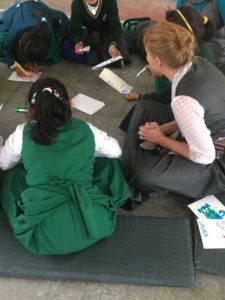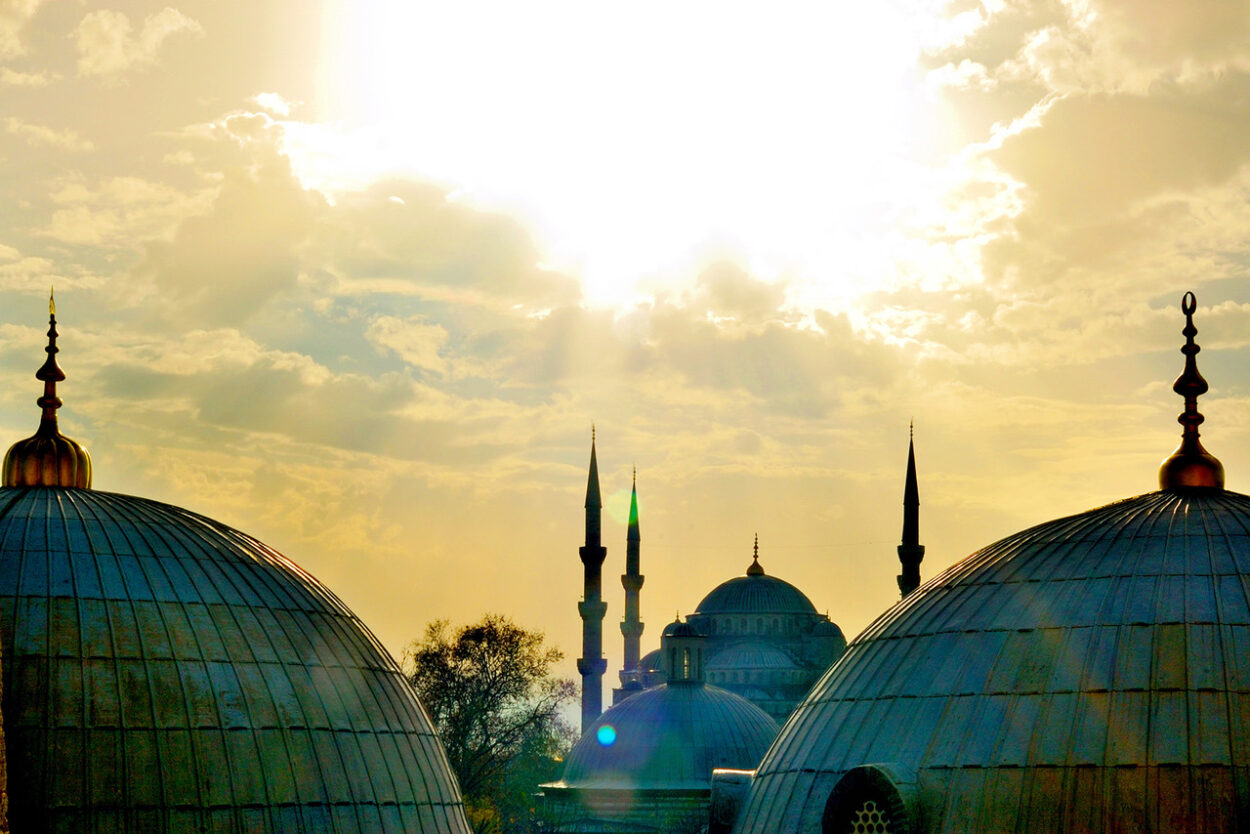 In March 2019, 12 students from the Antioch University Seattle Masters in Art Therapy, Counseling, and Couple and Family programs traveled to Southeast Asia to experience immersive, advanced coursework and training in Cambodia. The Cambodia course, co-led and co-taught by AUS teaching faculty, Alyssa Griskiewicz, and Jessica Leith, was based in Phnom Penh and rooted in the psychosocial experience of the Khmae people. Students were enrolled in one of four international versions of required, clinical coursework as pertaining to their individual plans of study.
In March 2019, 12 students from the Antioch University Seattle Masters in Art Therapy, Counseling, and Couple and Family programs traveled to Southeast Asia to experience immersive, advanced coursework and training in Cambodia. The Cambodia course, co-led and co-taught by AUS teaching faculty, Alyssa Griskiewicz, and Jessica Leith, was based in Phnom Penh and rooted in the psychosocial experience of the Khmae people. Students were enrolled in one of four international versions of required, clinical coursework as pertaining to their individual plans of study.

Griskiewicz, an AUS alumna herself (’13) is an art therapist and counselor in Seattle and has lead international programs for AUS students and many others in India, Nepal, and Guatemala. She has worked in the field of international education for more than 10 years and is the founder and director of Ebb & Flow Adventures, a travel organization specializing in immersive, intentional, educational travel. Leith is a marriage and family counselor and has traveled and worked extensively in Cambodia as a global mental health professional. Her work there centered on supporting NGO’s and universities in providing culturally relevant mental health interventions to communities in need.

“The International Service Learning Trips, expertly coordinated and lead by Alyssa Griskiewicz have been an invaluable addition to our Masters Program in Clinical Mental Health Counseling (CMHC),” said Katherine Fort, CMHC department chair. “The focus on global mental health, trauma treatment, and international social justice work directly parallels with the Antioch University mission, the core competencies of the CMHC Program, and clearly aligns to the focus of our accrediting body (CACREP).”
Together, this experienced team supported AUS master’s candidates from the art therapy, mental health counseling, and marriage and family therapy programs to expand worldview, think critically, and engage with curiosity in a culture vastly different from that of the American Pacific Northwest. Through the lenses of engaged inquiry and cultural humility, students explored the complexities of mental health issues and treatments relevant to Khmae communities around Cambodia. As part of the comprehensive course work, students engaged with an active group process and personal self-reflection regarding power, privilege, culture, and the impacts of global mental health initiatives.
 In pre-trip course work, students learned about Cambodian culture by familiarizing themselves with Cambodian history and culture through relevant readings and psychological articles that highlight historical, cultural, and psychological factors affecting this resilient culture. Upon arrival, students came face to face with contemporary mental health and social justice issues that impact the current cultural and political climate in Cambodia. Students presented at a Phnom Penh University and engaged in an information exchange with Cambodian students and practicing mental health clinicians and art therapists there.
In pre-trip course work, students learned about Cambodian culture by familiarizing themselves with Cambodian history and culture through relevant readings and psychological articles that highlight historical, cultural, and psychological factors affecting this resilient culture. Upon arrival, students came face to face with contemporary mental health and social justice issues that impact the current cultural and political climate in Cambodia. Students presented at a Phnom Penh University and engaged in an information exchange with Cambodian students and practicing mental health clinicians and art therapists there.
“I love watching students gain insight into healing, counseling and wellness modalities from diverse sources and to watch them wrestle with established cultural norms in both the United States and the culture they are visiting,” said Griskiewicz. “They’re compelled to think critically about ethics, culture-bound syndromes, treatment modalities and biases that they may have never considered, without the opportunity to have their worldviews shifted in real time, by real people in a variety of diverse settings. The theories and practices related to cultural humility in counseling really come alive for students as they navigate these intercultural experiences.”
 Students worked with local mental health teams interfacing with the complexities of historical trauma, domestic violence, and human rights issues in rural communities. Outside of the direct clinical and educational experience, participants explored Cambodian culture by visiting several important locales such as the natural history museum, the Killing Fields, Tuol Sleng (a museum which remembers and documents the tragic history of genocide in Cambodia), bustling markets, Angkor Wat, and explore the street art in Boeung Kak. Visits to remote villages as well as shared meals with Cambodian peers and hosts added to the immersive experience.
Students worked with local mental health teams interfacing with the complexities of historical trauma, domestic violence, and human rights issues in rural communities. Outside of the direct clinical and educational experience, participants explored Cambodian culture by visiting several important locales such as the natural history museum, the Killing Fields, Tuol Sleng (a museum which remembers and documents the tragic history of genocide in Cambodia), bustling markets, Angkor Wat, and explore the street art in Boeung Kak. Visits to remote villages as well as shared meals with Cambodian peers and hosts added to the immersive experience.
Photos are from previous AUS programs in Nepaland, India.

